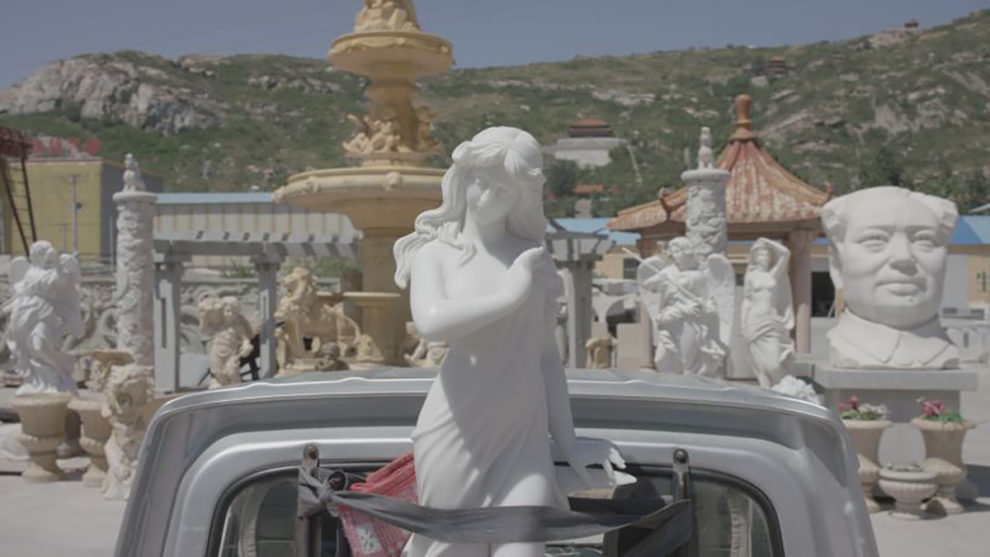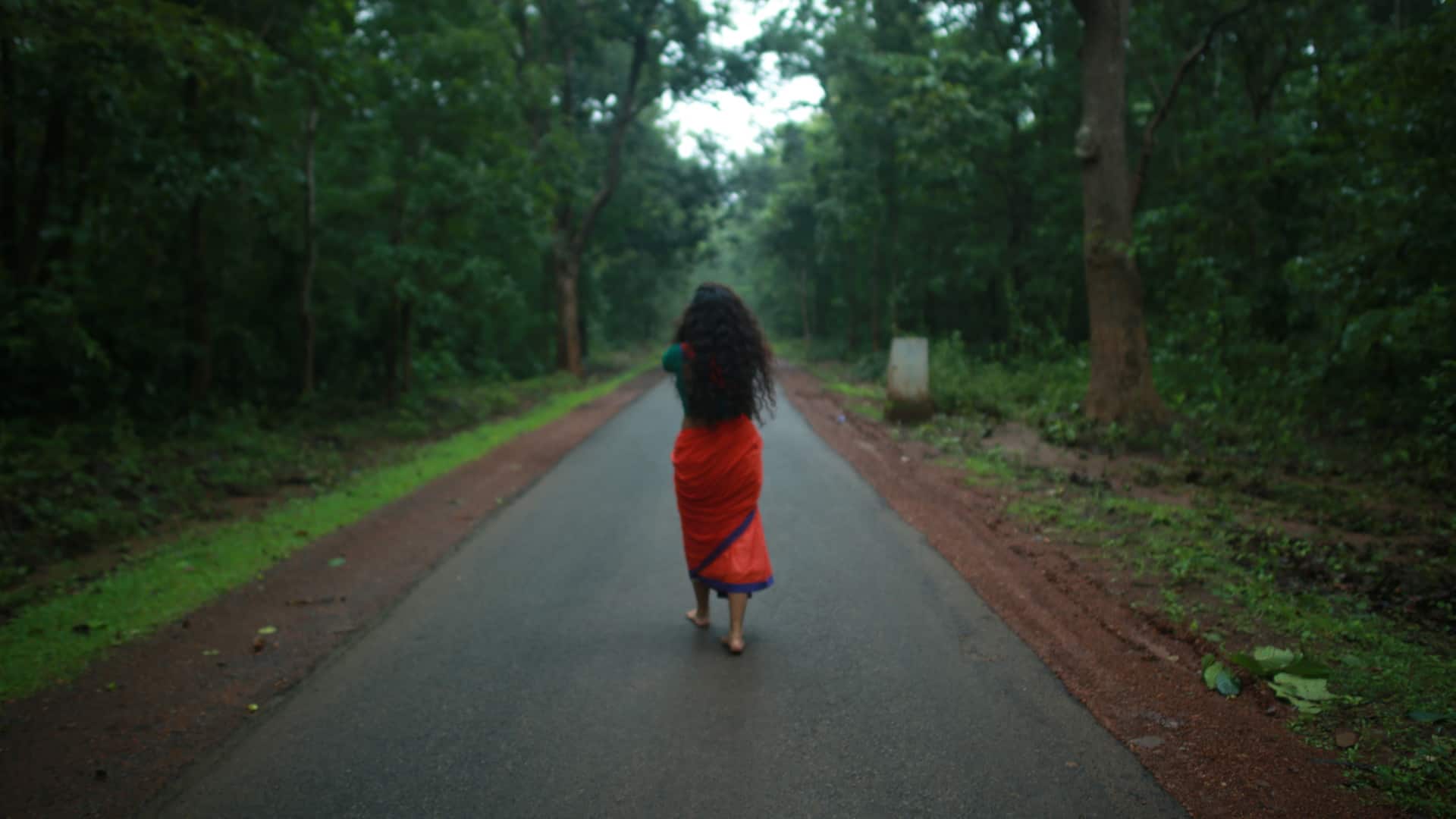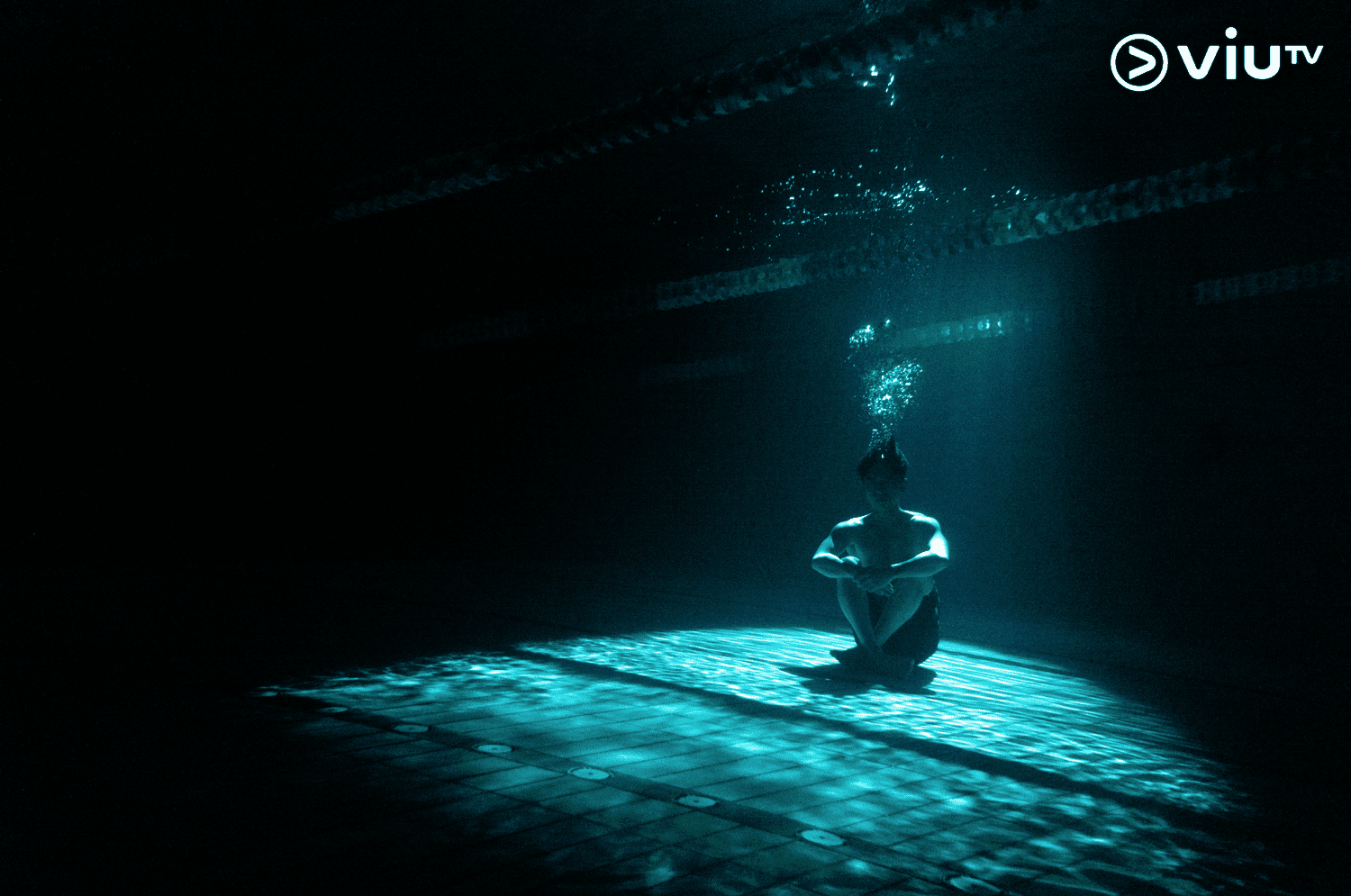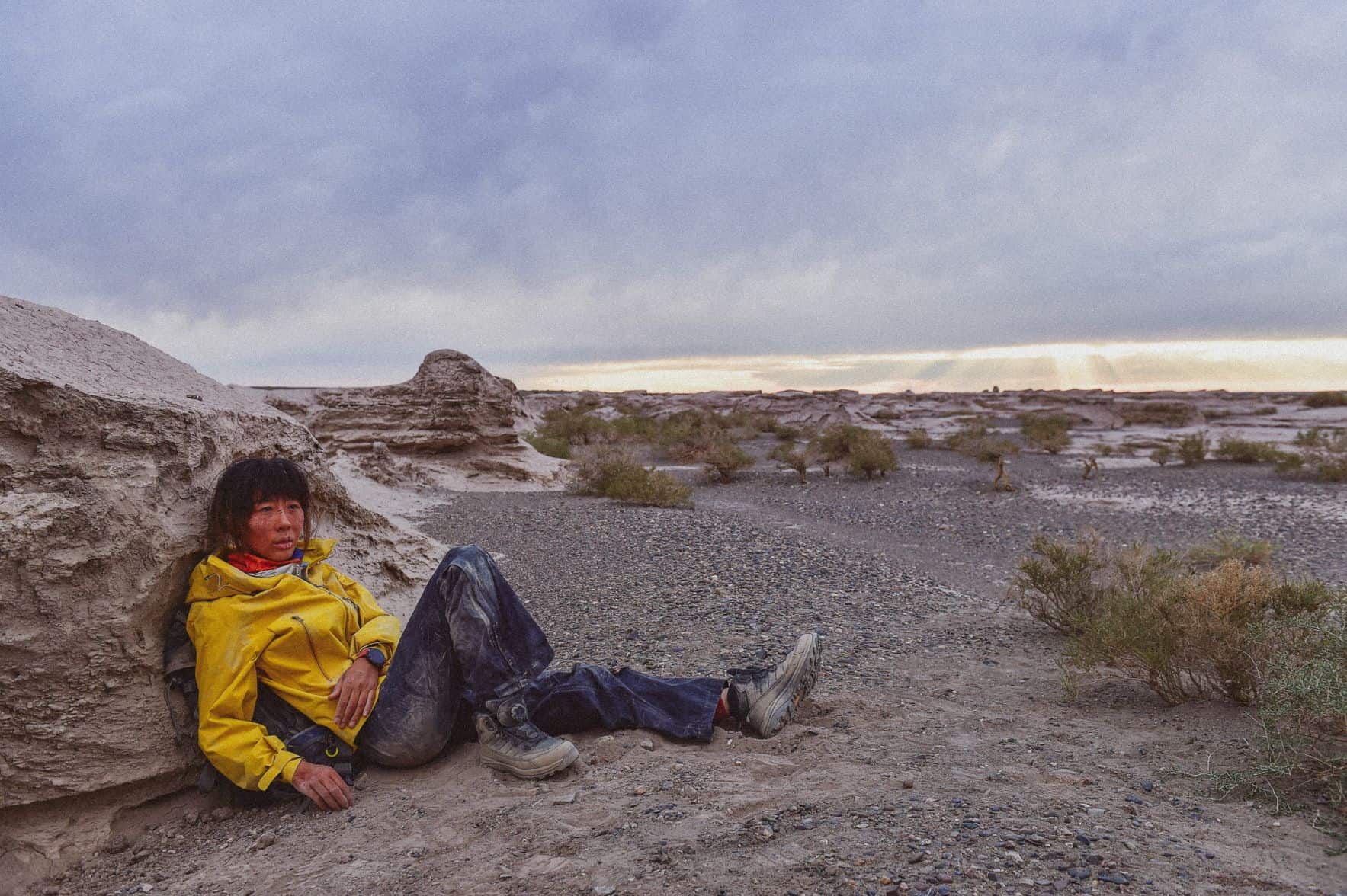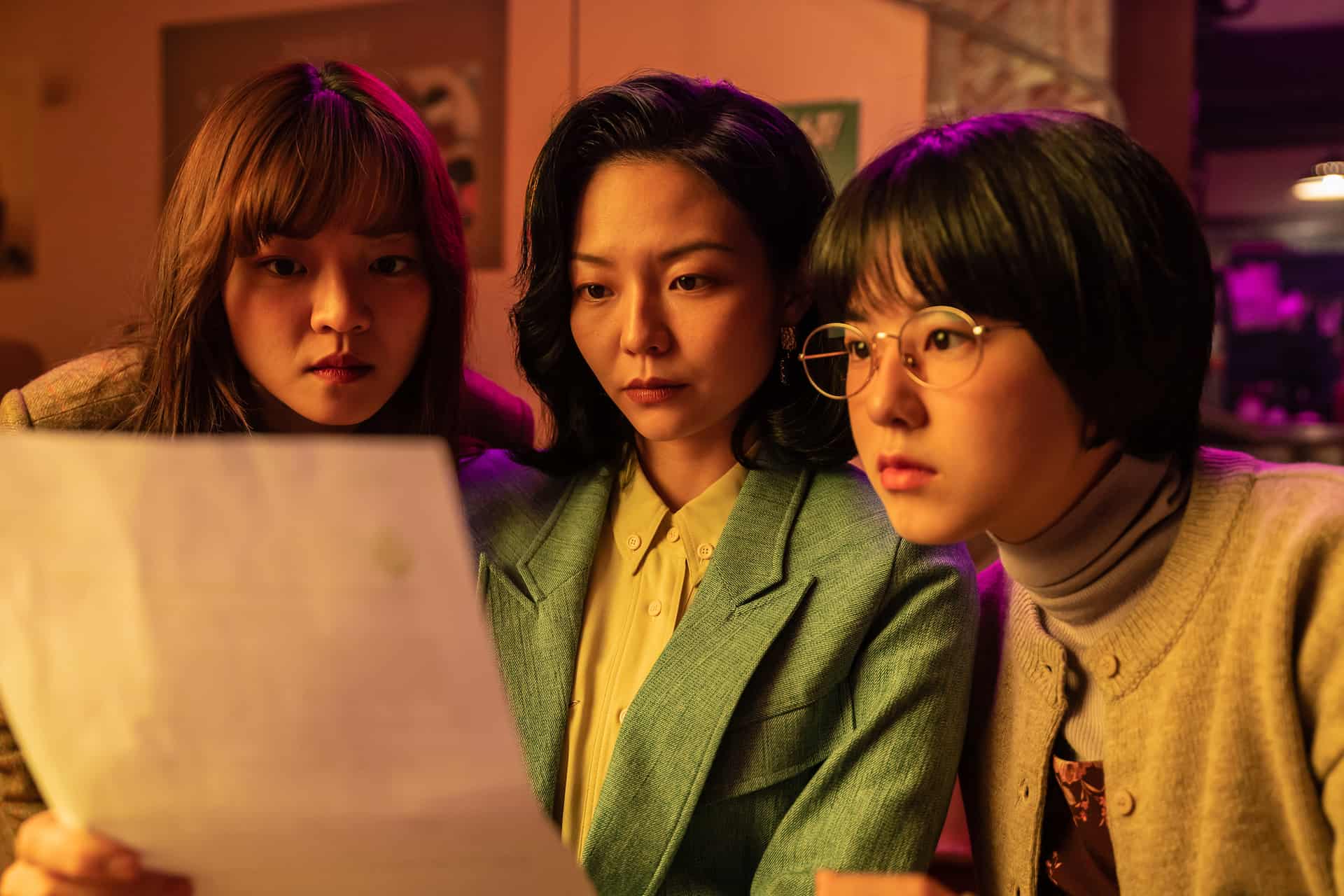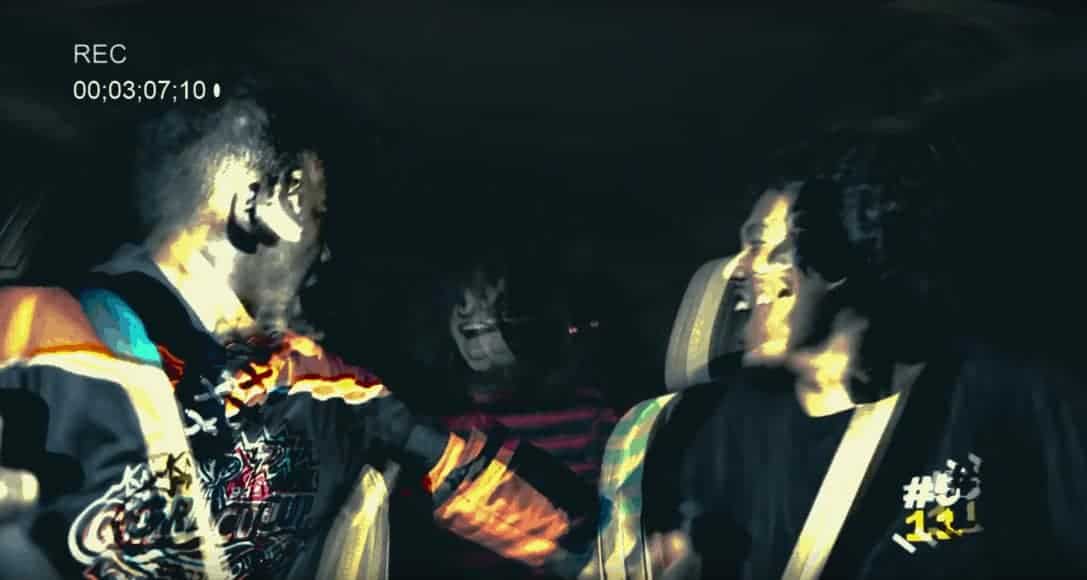The 24th Thessaloniki Documentary Festival will be held from Thursday 10 to Sunday 20 March, abiding by all health and safety protocols in force, in both physical spaces and online. Within the framework of the 24th TDF, 233 full-length and short film documentaries will be screened, at the time-honored home ground of the Festival, Olympion and Pavlos Zannas theaters, as well as in the movie theaters Frida Liappa, Tonia Marketaki, John Cassavetes and Stavros Tornes, at the Port of Thessaloniki. In addition, the audience will have the opportunity to watch films online through the Festival's digital platform.
Let's have a look at all the Asian titles of the Festival:
A Marble Travelogue, Sean Wang (The Netherlands, Hong Kong, France, Greece; 2021)
A piece of white marble stone mined in Greece takes us on its Odyssey along the global consumption driven by the Chinese domestic market, to investigate the role of China as the “world's buyer.” This film follows marble from its homeland to the other side of the world, where it is processed for sale back to the West. As the condition of world commerce constantly shifts and changes, we encounter those whose lives are devoted to the commoditization of things both ancient and new.
Newcomers
The Devil's Drivers, Daniel Carsenty and Mohammed Abugeth (Qatar, France, Lebanon, Germany; 2021)
The area south of Hebron, with its vast and beautiful landscapes, is home to an indigenous population of Bedouins. In their midst, Israeli settlers have built fortified villages on the hilltops, cutting the people from their lands, and their water sources. Exhausted after years of conflict, the Bedouins seek to make a living as construction workers in Israel. But the government regards them as a security threat. Every man who isn‘t married, and doesn‘t have at least one child, is banned from obtaining a working permit. Hamouda, a trafficker, is arrested along the border with his human cargo. At the time, his wife is six months pregnant. In prison, the guards refuse him the right to call her upon entering labor. Once he‘s released, he has only one goal: to make sure his newborn son, and the baby‘s mama, will never suffer material needs again. A gripping portrait, similar to a 1970s chase movie, filmed over five years about men living on the edge in one of the most fragile regions of the world.
Sirens, Rita Baghdadi (USA, Lebanon; 2022)
On the outskirts of Beirut, Lilas and her thrash metal bandmates, Shery, Maya, Alma, and Tatyana (widely known as Slave to Sirens), have big dreams but few opportunities. When the band's appearance at a UK music festival isn't the life-changer they had hoped for, Lilas comes home to Lebanon on the brink of collapse. At the same time, the complicated friendship between Lilas and her fellow guitarist Shery starts to fracture. With the future of her band, her country, and her dreams now all at stake, Lilas faces a crossroad. She must decide what kind of leader she will be, not only for her band, but also as a young woman struggling to define herself in Lebanon, a region of the Middle East as complex as each of the Sirens themselves.
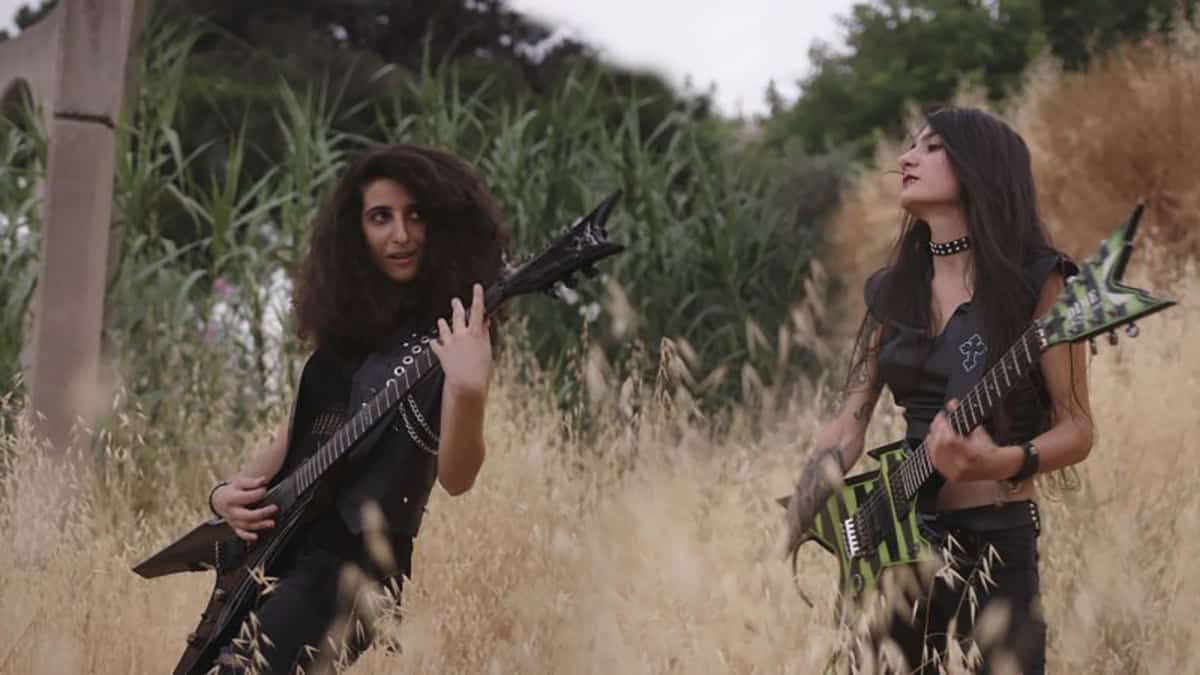
Film Forward
Anachronic Chronicles: Voyages Inside/Out Asia, Pan Lu & Yu Araki (Hong Kong, Japan, South Korea; 2021)
The availability of the home video camera changed the way common people in East Asia see themselves and the world: the excitement/discomfort about the ability to control the making of moving images for the first time; the (self-)invitations to perform and present; the half-staged, voyeuristic and unconscious recording of the family
Film Forward Shorts
Cafe de Kinema, Sol Miraglia (Argentina, Japan; 2021)
In the suburbs of Tokyo, away from the chaos and noise of the city, is the Café de Kinema. As if they were in a movie theater, out of time and space, people find refuge in their own silence while the melodies of Nino Rota get lost in the smoke of their cigarettes. In the words of the director: “The time to smoke a cigarette is approximately ten Minutes. Where does our mind travel during that interval? I imagine it does so like tobacco smoke and music, which travel suspended in the air to be lost… I'm not alone, some people need to take refuge in fantasy too from cinema, tea and cigarettes.”
Post-Reality
Virtual Voice, Suzannah Mirghani (Sudan, Qatar; 2021)
This is a satirical review of our times. Suzi doll is an ego-warrior. The director's online avatar, marching to the algorithms of social media. She is lit by temporary outrage. A trending indignation. A passion that is fashion. The politics of the popular. Her activism is abstract. Her help is hypothetical. We know many girls like Suzi, and many times we are her: vacuous virtual voices, echoing injustices.
Top Docs
Republic of Silence, Diana El Jeiroudi (Germany, France, Syria, Qatar; 2021)
Twelve years in the making, Republic of Silence bears witness to a tragedy on an epic scale, accompanied by an ever-expanding mosaic of fragile, deeply embedded moments from Diana El Jeiroudi's life, beginning with the memory from the age of seven when her father gives her a camera, right up to the present day. Sometimes the frame holds a definitive version of what is happening in the world around the filmmaker. And then it collapses. White letters emerge on a black screen to conjure her inner world in this cinematic memoir. A formal and orderly life in Berlin competes with a life in Damascus that is perforated by dictatorship and dismantled by wars and international political corruption. El Jeiroudi takes solace in cinema, music, the serenity of dreams, and the daily solidarity of a durable and abiding love story.
I'm So Sorry, Zhao Liang (France, Hong Kong, The Netherlands; 2021)
Α film conceived as an essay-poem, which questions the choice of nuclear energy, and sounds like a prophecy, a warning. The camera captures things you don't want to believe. These images cross the faces and the bodies of the inhabitants who insist on staying in irradiated territory.
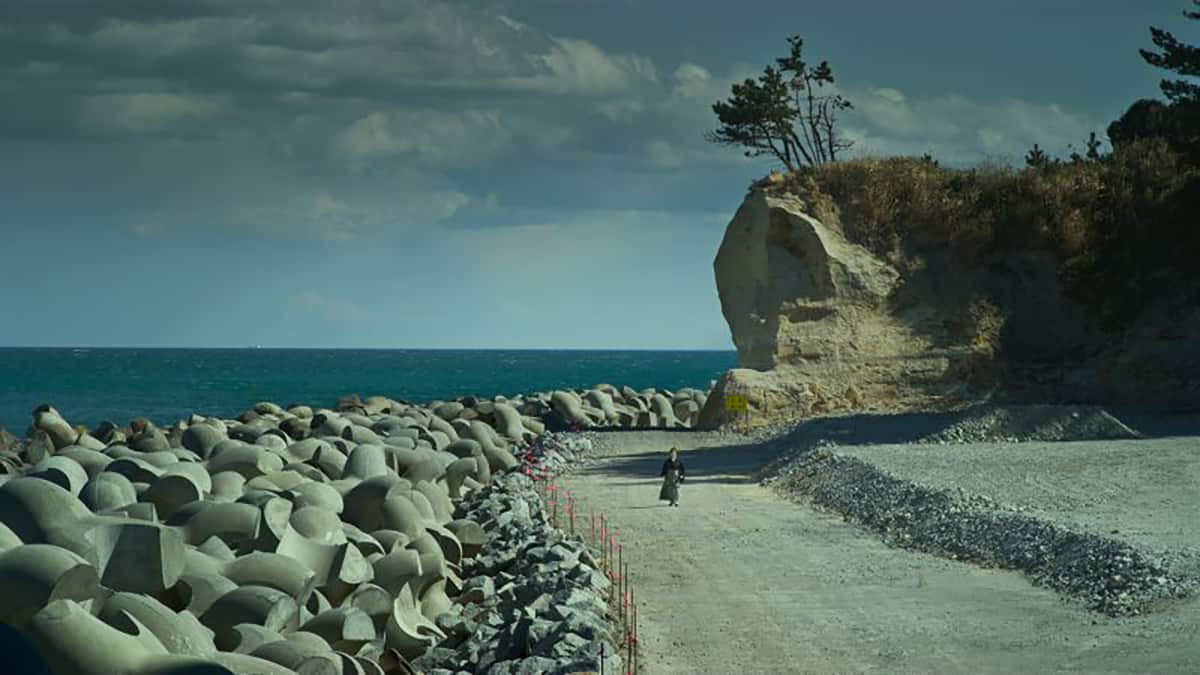
Dark Red Forest, Huaqing Jin (China; 2021)
A work of visual awe and matter-of-fact spiritual inquiry, this majestic documentary portrait details the annual retreat of thousands of Tibetan nuns to small wooden houses on the vast Tibetan Plateau. With extraordinary intimacy, the camera nestles in with the women of the Yarchen Monastery, who, during the 100 coldest days of the year, learn about – and in some cases experience – profound matters of life and death, suffering and healing, karma and consequence. A clarifying work of faith and philosophical inquiry, set against a forbidding landscape.
Batata, Noura Kevorkian (Lebanon, Canada, Qatar; 2021)
2022 marks the 10th anniversary of the Syrian Refugee Crisis. With over six million refugees, it remains the largest human forced migration crisis of our times. Shot over an unparalleled ten years, Lebanese-Syrian director Noura Kevorkian's intimate camera follows the plight of Maria and her family of Syrian migrant workers who find themselves unable to return back to their hometown of Raqqa Syria. Unique among the numerous refugee stories to date, this verité documentary captures an entire decade while documenting not just the age-old conflict between Syria and Lebanon, but the unbending spirit of a woman who puts family ahead of all else.
How the Room Felt, Ketevan Kapanadze (Georgia; 2021)
A group of lesbians get together regularly at a football club canteen in a Georgian city, to hang out, to party, to hug each other, and to discuss existential issues. It's a cozy, safe space for these young women in a society that's not known for embracing its LGBTQ+ community. Discrimination, exclusion, and violence are part of the daily reality for these sports enthusiasts and their girlfriends, whether on the streets or, in some cases, within the family. When they're together, they find the love, warmth, and safety they need to fully be themselves. The director's camera skims the outer walls of this protective bubble, making palpable the extraordinary atmosphere between the women in this room – as the mood shifts from celebratory and elated, to intimate and lethargic, to lively with debate.
The Rhine Flows To the Mediterranean Sea, Offer Avnon (Israel; 2021)
As a son to a Holocaust survivor and as an individual who chose to emigrate to Germany, the director searches after the cognitive presence of the Holocaust and its possible influence on his perception. The subjective character of the film derives from the strong bond between us and our story; collective and individual trauma is taken for a given. This theme, personal and emotional as it is, holds a substantial political significance, and it takes a clearer place as the film progresses, as the scenery changes from Germany and Poland towards the director's hometown Haifa, where Jews and Arabs live side by side.
Dead Sea Guardians, Ido Glass and Yoav Kleinman (Israel; 2021)
As an example of the conflict-driven, uncoordinated management in the region, we are witnessing the Dead Sea drying up at an alarming rate. Calling for action, a joint Israeli-Jordanian-Palestinian organization holds an unprecedented, first-ever, event. For one moment, a group of people, from across the borders, join forces to stop a catastrophe.
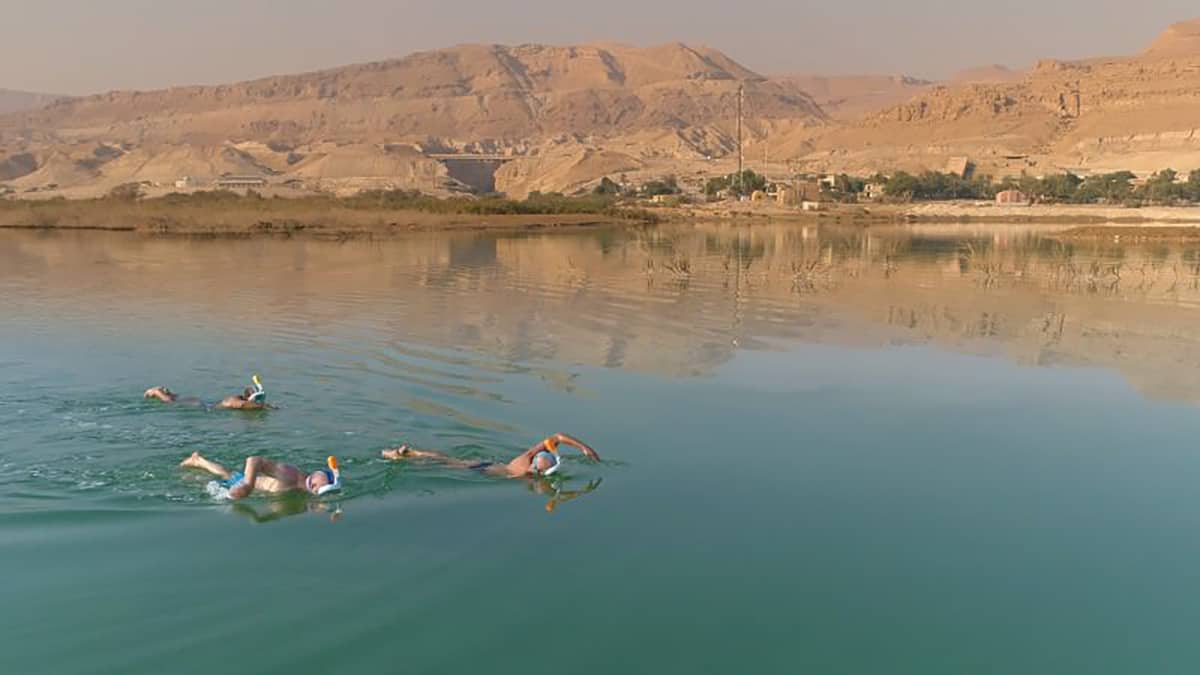
Children of the Mist, Ha Le Diem (Vietnam; 2021)
In the misty mountains of North Vietnam, a Hmong girl walks the thin line between childhood and becoming an adult. Over a period of three years, girls in her minority are forced to lose their innocence, discover the traps of seduction, and fight for their independence. For her debut feature, a young Vietnamese filmmaker spent three years in the community, documenting with a sensitive approach the controversial tradition of “bride-kidnapping” through the eyes of a teenager that finds herself torn between her desire for education and a life outside the village and the pressures of cultural values that view young women as commodities to be sold for high dowries. A compelling and eye-opening drama.
I Am Trying to Remember, Pegah Ahangarani (Iran, Czech Republic; 2021)
Pegah talks about Gholam, a man who's not like her father, mother, uncles, or aunts, even though he's always present at family gatherings. Gholam films these everyday scenes with his own camera. At the time, Pegah can't imagine what the purpose of these films might be, but she's happy to pose before the lens of this family friend, whom she's certainly very fond of. It is as if Pegah, the film's director and chief protagonist, is reading from a children's book; as if we are looking over her shoulder at Gholam's films of the family and the old photos. The large family radiates great warmth as we see them shoveling snow or just sitting around at home. But then comes the chapter about Gholam and the Iranian revolution, heralding a plot twist in the story that comes to symbolize thousands of Pegahs and Gholams inside and outside Iran.
House of the Resilient Children, Francesca Zonars (Lebanon, Italy; 2021)
Since 1948, Lebanon hosts a large community of Palestinians who escaped from their land. Even confined in the camps, members of the Palestinian community get organized and build places of resilience. Assomoud (House of the Resilient Children) represents an oasis of joy and peace within the situation of misery, decay, and political deadlock in Lebanon.
Next Gen
Try Harder!, Debbie Lum (USA; 2021)
San Francisco's Lowell High, one of the best public schools in the country, draws high achievers – nearly 70% Asian Americans – from across the city into a fiercely competitive universe. The camera follows seniors through the hallways and into classrooms as the pressure intensifies to impress admissions officers at elite universities with their report cards, test scores, and overall awesomeness. The students proudly own their identity as nerds and tell their stories with candor and humor despite the stress. Will they achieve their dreams? What happens if they fail?
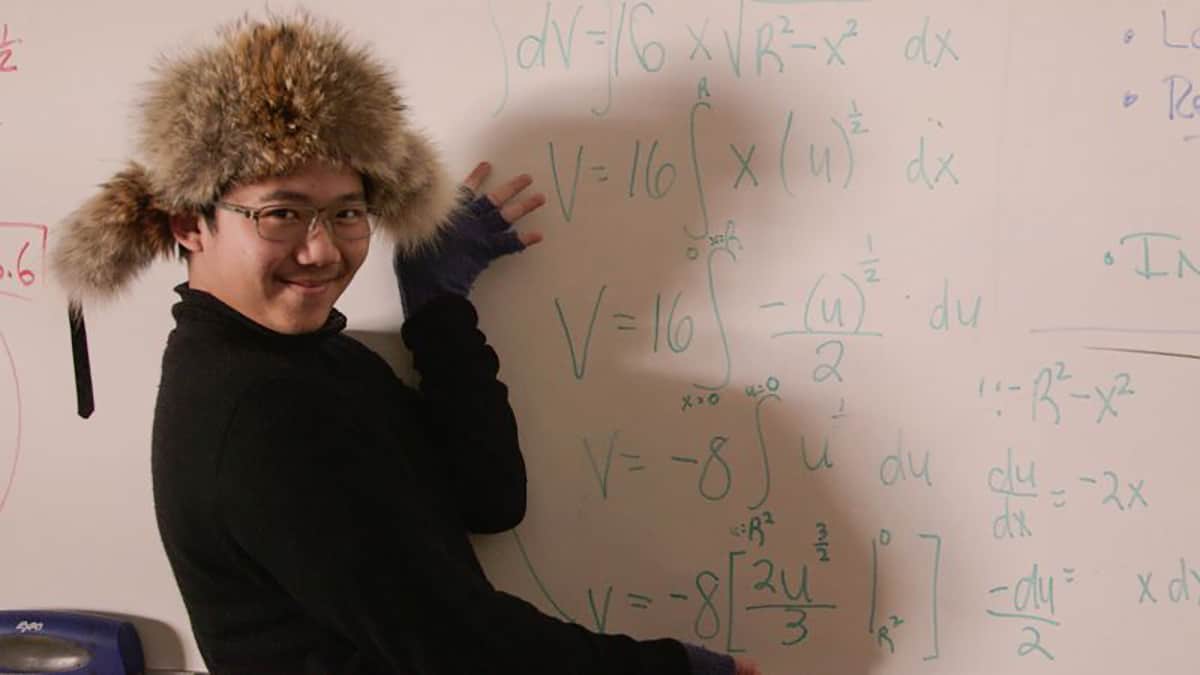
Tattoo Your Dreams, Mehdi Ganji (Iran; 2021)
In collaboration with the Spanish Football League (La Liga), a couple of talent football camps are organized in some cities in Iran. La Liga veteran football experts are to select 17 boys between 11 to 13 who would be later dispatched to the prestigious football camps in Spain to complete the course. Despite coming from different cultural backgrounds, they all think of football similarly: a launch pad that secures the future of their family. Parents hope for their children to go to Spain or other European countries and being recruited by a professional football clubs in near future, just to change the economic and social situations of their families. The boys, on the other hand, can already imagine themselves as football stars, although they have never been abroad and obtaining even a Visa could be a source of trouble.
Water, Wind, Dust, Bread, Mahdi Zamanpour Kiasari (Iran; 2021)
A poetic mid-length documentary that depicts scenes from the everyday life of Abolfazl, a young boy who is missing both hands. Despite his disability, Abolfazl lives a full life with his family and friend Setayesh, who has no birth certificate, in a palm orchard near the Afghan-Iranian border, where foreign visitors often head for eco-tourism. Both belong to a group of children who live stateless in Iran, which poses another major disadvantage for their future.
Imad's Childhood, Zahavi Sanjavi (Sweden, Kurdistan, Latvia; 2021)
After more than two years in captivity with ISIS, Yazidi Ghazala and her two small boys are released and return to Iraqi Kurdistan. Four-year-old Imad is explosively aggressive and his favorite pursuits are stoning rabbits and beheading dogs. With patience and respect, Zahavi Sanjavi has closely followed Imad and his traumatized family for several years. With the help of a teacher, Imad begins to take small steps to find his way back to a normal childhood.


